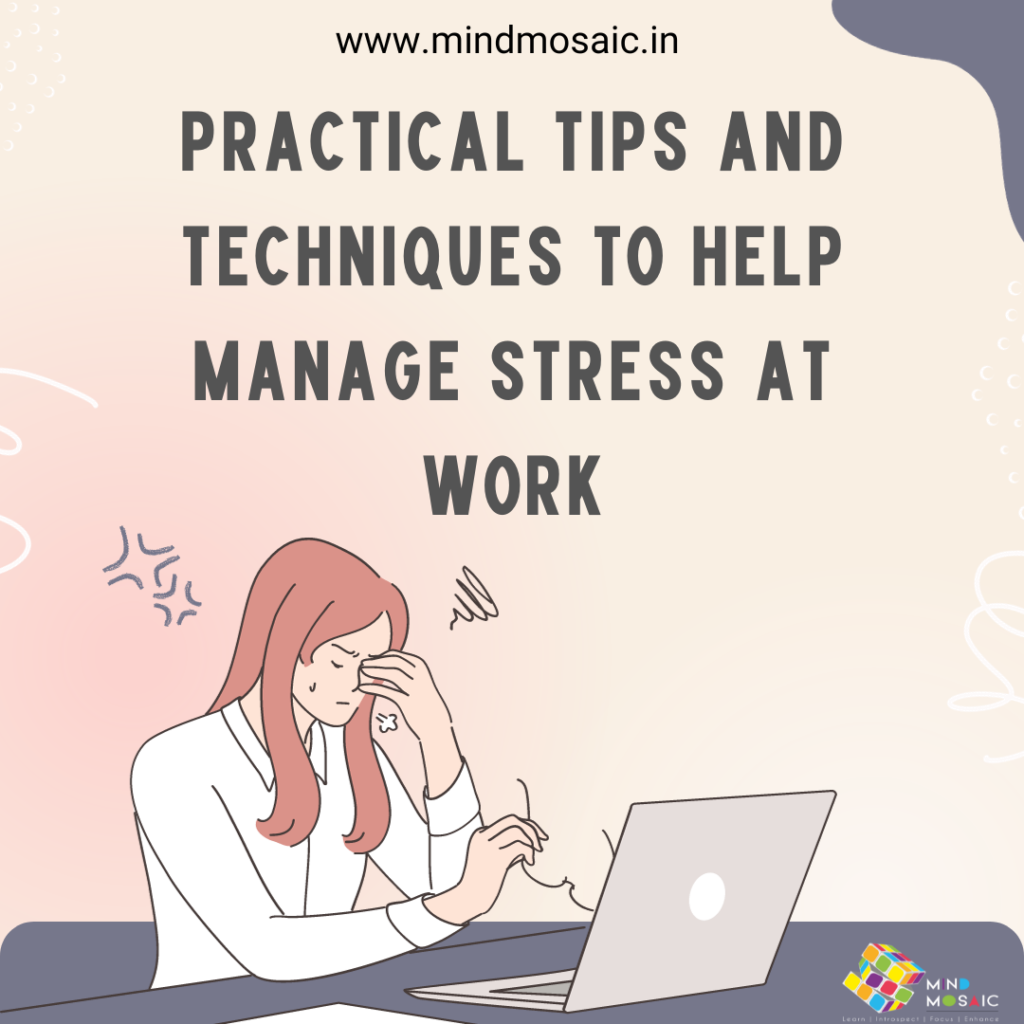Managing stress is an ongoing process, and different strategies work for different people.

Here are some practical tips and techniques to help manage stress at work :
- Prioritize and Organize: Create a to-do list or use time management techniques like the Eisenhower Matrix to prioritize tasks. This can help you focus on what’s most important and reduce the feeling of being overwhelmed.
- Break Tasks into Smaller Steps: Large projects can be daunting. Break them into smaller, manageable tasks, and tackle one at a time to reduce stress.
- Time Management: Set specific times for work, breaks, and relaxation. Time blocking can help you allocate your day effectively and maintain a healthy work-life balance.
- Deep Breathing: Take short breaks to practice deep breathing exercises. Inhale deeply through your nose, hold for a few seconds, and exhale slowly through your mouth. This can help reduce stress and improve focus.
- Physical Activity: Incorporate short bursts of physical activity into your day. Even a brief walk or stretching exercises can help relieve tension and boost your mood.
- Mindfulness Meditation: Spend a few minutes each day in mindfulness meditation. This practice can help you stay present, reduce anxiety, and improve your ability to manage stress.
- Stay Organized: Keep your workspace organized and clutter-free. A tidy environment can lead to a clearer mind.
- Delegate Tasks: If possible, delegate tasks to colleagues or employees. Don’t try to do everything on your own.
- Set Boundaries: Define your work hours and personal time. Avoid overworking and ensure you have time for relaxation and family.
- Connect with Colleagues: Build a strong support system at work. Sharing your concerns with colleagues can be therapeutic and create a sense of camaraderie.
- Limit Multitasking: Focus on one task at a time to reduce stress and improve the quality of your work.
- Take Regular Breaks: Short breaks throughout the day can help you recharge and maintain productivity.
- Seek Help: If you’re feeling overwhelmed, don’t hesitate to talk to your supervisor, HR department, or a mental health professional. They can provide guidance and support.
- Positive Self-Talk: Challenge negative thoughts and practice positive self-talk. Replace self-criticism with self-encouragement.
- Time Off: Take regular vacations and personal days to recharge and prevent burnout.
Experiment with these tips to find the strategies that best suit your needs and help you maintain a healthy work-life balance.
